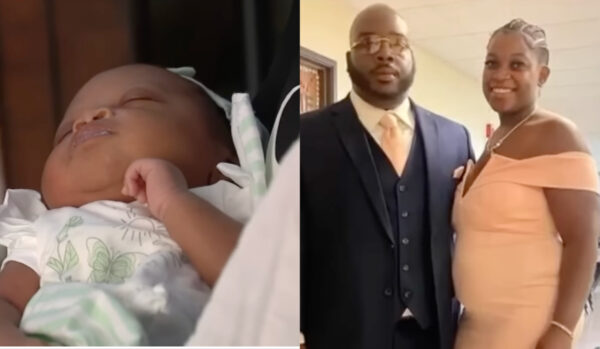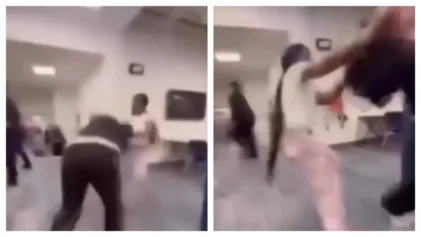A Michigan family is looking for answers after burying a 25-year-old mother who lost her life after giving birth to her second child.
The woman, who otherwise seemed healthy, had an emergency craniotomy after a post-labor CT scan revealed excessive bleeding on the side of her brain. A craniotomy is a procedure to relieve swelling and pressure on the brain caused by hematoma and trauma.
The deceased’s mother said she is waiting for an autopsy to provide the grieving family with insight into what happened to Alona White on March 7 at Ascension St. John Hospital, according to FOX 2 Detroit.

Katina Ponder, White’s mother, said her two granddaughters will now have to grow up without the care of their mother.
“I did not expect to get a call saying that my baby passed away,” Ponder said.
While Aleah Sullivan, 2, and Ari, two weeks old, are too young to understand that their mother has passed, family members are also in the dark regarding why a headache turned so deadly so quickly.
“She was 25, perfectly healthy, I just don’t know what went wrong,” she said, adding, “We went from being joyful to devastated.”
According to her mother, White was all smiles and excited to give birth to Ari, her new baby. Like many women, she went into the hospital to have a cesarean delivery performed and anticipated an easy procedure.
Hours after giving birth, Baby Ari was taken to the NICU. Still, after a few hours passed, White was able to nurse her newborn. After breastfeeding, the mom started getting headaches around 4:30 a.m. Concerned nurses came in to see her, but by the time of their arrival, she was unresponsive.
She was then rushed to have a CT scan performed, resulting in her spending five days in the ICU before she passed away on March 13.
“She only really got like an hour to spend with her – it’s just so – it’s so unfair that she was robbed of life like that – I just don’t understand what happened,” Ponder shared.
The family started a GoFundMe on March 23 to help with her funeral costs. They were hoping to raise $20,000, but fundraising fell short by just under $4,000.
Loved ones had hoped to use anything left over to help support White’s partner Derrick with the rearing of the two young girls.
“It’s no amount of money that will bring her back and for these babies to live without their mother – no amount of money,” she said.
Ponder joins other Black grandmothers such as Shawnee Benton Gibson mourning the loss of their daughters who have died after giving birth.
Benton Gibson’s daughter Shamony Gibson is one of the featured cases in “Aftershock,” a documentary that speaks about the Black maternal health crisis in America. Similar to White, Shamony Gibson passed away after giving birth via C-section to her second child; she also left behind a 2-year-old daughter to mourn her.
While grieving the death of her daughter, Benton Gibson and her family members sought to make sure that they spoke out about what she calls an “epidemic.” She created a documentary to talk about the systemic thread in hospitals that aid the high Black maternal mortality rate and ways that racial bias in the medical field aids in the discrepancy in care for African-American women.
During a TEDx Talk, Benton Gibson spoke about why she is a more vocal advocate for this cause after her daughter’s passing. She said, “My daughter lived 11,248 days and that day of death does not have the final word.”
“This talk is about the inequity that exists in the United States. Black women are three to four times more likely to die doing the most natural thing they could ever do which is bring new life into the world,” she continued.
In her talk, Benton Gibson quotes a 2020 report from the National Center for Health Statistics. The report shows the maternal mortality rate for women of African descent is approximately 55 deaths per 100,000 live births. The statistic for white women is almost a third less, at 19.1 deaths per 100,000 live births.
Black women in America are also more likely to have C-sections than white women.


